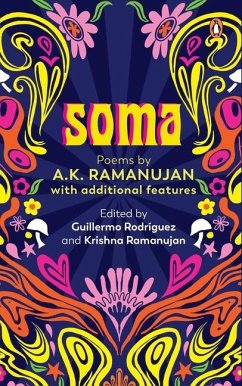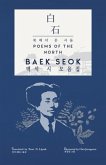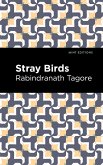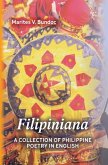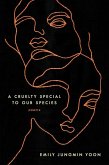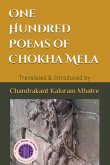Schade – dieser Artikel ist leider ausverkauft. Sobald wir wissen, ob und wann der Artikel wieder verfügbar ist, informieren wir Sie an dieser Stelle.
- Gebundenes Buch
- Merkliste
- Auf die Merkliste
- Bewerten Bewerten
- Teilen
- Produkt teilen
- Produkterinnerung
- Produkterinnerung
For A.K. Ramanujan, who infused his diverse knowledge of Indian literatures and traditions into his poetry, the idea of Soma, the mysterious plant used by Vedic priests to extract ambrosia, fed his creativity.
Andere Kunden interessierten sich auch für
![Baek Seok Baek Seok]() Baek SeokBaek Seok25,99 €
Baek SeokBaek Seok25,99 €![Stray Birds Stray Birds]() Rabindranath TagoreStray Birds15,99 €
Rabindranath TagoreStray Birds15,99 €![Filipiniana Filipiniana]() Marites V BundocFilipiniana26,99 €
Marites V BundocFilipiniana26,99 €![A Cruelty Special to Our Species A Cruelty Special to Our Species]() Emily Jungmin YoonA Cruelty Special to Our Species23,99 €
Emily Jungmin YoonA Cruelty Special to Our Species23,99 €![On Being Human On Being Human]() Ghazala AlamOn Being Human27,99 €
Ghazala AlamOn Being Human27,99 €![One Hundred Poems of Chokha Mela One Hundred Poems of Chokha Mela]() Chandrakant Kaluram MhatreOne Hundred Poems of Chokha Mela11,99 €
Chandrakant Kaluram MhatreOne Hundred Poems of Chokha Mela11,99 €![When I Bleed Words When I Bleed Words]() Shirley SiatonWhen I Bleed Words19,99 €
Shirley SiatonWhen I Bleed Words19,99 €-
-
-
For A.K. Ramanujan, who infused his diverse knowledge of Indian literatures and traditions into his poetry, the idea of Soma, the mysterious plant used by Vedic priests to extract ambrosia, fed his creativity.
Produktdetails
- Produktdetails
- Verlag: Penguin Books Canada
- Seitenzahl: 208
- Erscheinungstermin: 10. September 2024
- Englisch
- Abmessung: 222mm x 140mm x 25mm
- Gewicht: 367g
- ISBN-13: 9780670098040
- ISBN-10: 0670098043
- Artikelnr.: 69192007
- Herstellerkennzeichnung
- Produktsicherheitsverantwortliche/r
- Europaallee 1
- 36244 Bad Hersfeld
- gpsr@libri.de
- Verlag: Penguin Books Canada
- Seitenzahl: 208
- Erscheinungstermin: 10. September 2024
- Englisch
- Abmessung: 222mm x 140mm x 25mm
- Gewicht: 367g
- ISBN-13: 9780670098040
- ISBN-10: 0670098043
- Artikelnr.: 69192007
- Herstellerkennzeichnung
- Produktsicherheitsverantwortliche/r
- Europaallee 1
- 36244 Bad Hersfeld
- gpsr@libri.de
A K Ramanujan (1929-1993), born in Mysore, India, received his B.A. with Honors in English Language and Literature from Mysore University in 1949, and his M.A. the following year. For the next eight years, he was a lecturer in English successively in S.N. College, Quilon (Kerala), Thiagarajar College, Madurai (Tamil Nadu), Lingaraj College, Belgaum (Karnataka), and M.S. University, Baroda (Gujarat). In 1958, he received graduate diplomas in linguistics from Deccan College, Poona. The following year Ramanujan came to the United States on a Fulbright fellowship, enrolling at Indiana University, which awarded him a Ph.D. in linguistics in 1963. He joined the faculty of the University of Chicago in 1962 as assistant professor, and was appointed professor in 1968. At the time of his death, he was the William H. Colvin Professor in the Department of South Asian Languages and Civilizations, the Department of Linguistics, and the Committee on Social Thought. He also taught as a visiting professor at Harvard University, University of California at Berkeley, University of Wisconsin, Madison, and University of Michigan. Ramanujan received many honors and prizes, including the Padma Shri awarded by the Government of India in 1976 for contributions to Indian literature and linguistics, and a MacArthur Prize Fellowship in 1983. In 1988, he delivered the Radhakrishnan Memorial Lectures at All Soul's College, Oxford. He was elected to the American Academy of Arts and Sciences in 1990. In 1999, he was posthumously given the Sahitya Akademi Award in English for The Collected Poems. He was the author or translator of twenty-three books, including eight posthumous works, and he co-authored and edited various other seminal publications. While still alive, he published seven volumes of original poetry in English and Kannada, and landmark translations of verse from Tamil (ancient Sangam classics and medieval Alvar saints) and Kannada, including his famous book of poetry from medieval Kannada mystics, Speaking of Siva (Penguin, 1973), which was nominated for the National Book Award in the USA. His translation of U.R. Ananthamurthy's Kannada novel Samskara is considered a classic. His last published book during his lifetime was Folktales from India, Oral Tales from Twenty-two Languages (Pantheon, 1991). Mere biodata, however, cannot convey the magnitude of Ramanujan's talents--as teacher, scholar, poet, literary critic, and translator-nor how deeply he influenced a whole generation of poets, translators and scholars, and enriched the lives of all who came to know him. Guillermo Rodriguez, an active promoter of Indo-Spanish cultural relations, is the founding director of Casa de la India, a pioneering cultural center in Spain, which has become the model for India's cultural diplomacy abroad. A passionate traveler, it was during a visit to India in the early 1990s that he chanced upon Indian poetry in the translations of A.K. Ramanujan, awakening his interest in the life and works of the poet-scholar. Krishna Ramanujan is a science writer at Cornell University in Ithaca, New York. Coupled with life-long literary interests, he has worked as a writer for Earthwatch Radio, NASA and Cornell University. He has published more than 2,000 news stories on topics related to climate change, ecology, biology and genetics. He is the son of AK Ramanujan.

